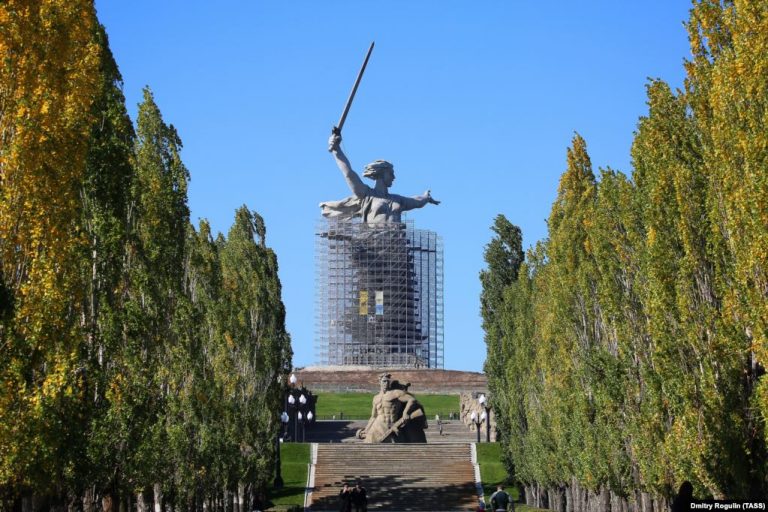Russia Monthly Digest: Drop in Alcohol Consumption WTO Reports and New Raids Against Alexander Navalny’s Anti-Corruption Foundation4 min read
– Some good news began this month, with the World Health Organisation (WHO) reporting that alcohol consumption in Russia fell by 43% between 2003 and 2016 on October 1st. According to WHO, Russians used to be considered some of the largest consumers of alcohol in the world, and had some of the lowest life expectancy rates. Low life expectancy is at its highest ever, with men living to 68 years and women to 78. The decrease in drinking is largely credited to sweeping reforms that then-president Dimitri Medvedev introduced, including banning alcohol advertising in 2012 and classing beer as an alcoholic substance in 2011 – before that, anything below 10% in strength was considered a foodstuff.
– The first person to walk in space, Aleksei Leonov, died at age 85 on October 11th in Moscow. The cosmonaut made history when he stepped out of his spacecraft on March 18th 1965, and went for a spacewalk that lasted 12 minutes – four years before Neil Armstrong set foot on the moon. Leonov almost died in space after his suit inflated because of the lack of pressure , but managed to regain entry back into his space capsule after releasing some oxygen and manoeuvring backwards. President Putin said that he “always admired Leonov’s courage and believed he was a man amongst men, with a capital M”.
– Russian national Anna Bogacheva was arrested in Minsk, the capital of Belarus, on Monday October 14th, after being detained under an international arrest warrant issued by the United States. Bogacheva was one of 13 other Russians indicted last year in special counsel Robert Mueller’s report on interference in the 2016 US Presidential election. Russia was quick to provide consular assistance to Bogacheva, and she was released on Tuesday morning. A spokesman for the Belarusian General Prosecutor’s office said that there were ‘no grounds’ for Bogacheva’s extradition to the US or arrest. She is accused of working as a translator and data analysis overseer for the Saint Petersburg-based Internet Research Agency, a notorious Russian troll farm which was also indicted by the Mueller report.
– On a similar note, Facebook began to suspend a series of Instagram accounts posing as people inside of America that originated in Russia, mostly from the Internet Research Institute, on October 21st. These accounts were directed at Americans with political messaging about the 2020 election campaign. Nathaniel Gleicher, the head of cybersecurity policy at Facebook, said that “we see this operation targeting largely U.S. public debate and engaging in… political issues that are challenging and sometimes divisive in the U.S right now”. The Internet Research Institute’s network consisted of around 50 Instagram accounts, which have since been removed.

The offices of opposition leader Alexander Navalny’s Anti-Corruption Foundation was once again raided on October 15th. Image source
– Leader of the Russian opposition Alexander Navalny has said that raids against his associates by the Russian police, which began on October 15th, amount to the “biggest coordinated searches in the country since 1938”, the last year of Joseph Stalin’s purges. The searches follow the Kremlin’s branding of Navalny’s Anti-Corruption Foundation (FBK) a “foreign agent” as it received a small donation from an anonymous Spanish donor – this is illegal in Russia. Navalny claims that usually the bank rejects foreign donations automatically, but as their own bank accounts and accounts of over 100 employees had been frozen, the transaction could not be reversed. This is what allowed the authorities to begin raids on the FBK offices. The Foundation has published many investigations into corruption of President Putin’s inner circle.

Famous statue The Motherland Calls in Volgograd. Image source
– The Motherland Calls, a statue in the southern city of Volgograd (formerly Stalingrad) has begun to be revealed after a makeover started in 2017 on the 75th anniversary of the end of World War Two in Russia. The sculpture’s head and arms, which had previously been enveloped in scaffolding, are now visible. Workers on the statue are tasked with cleaning and restoring, filling in cracks, and applying a waterproof coating to the stone. The statue was inspired by the Winged Nike statue from ancient Greece, and was designed by famous Soviet sculptor Yevgeny Vuchetich. When asked about his design by Soviet authorities, Vuchetich said: “My bosses asked me why her mouth is open, it doesn’t look beautiful [they said]. And I answered, because she is screaming: ‘For the Motherland, you motherf*****s!’ They never asked again.”
– On October 24th a Moscow court extended the detention of Paul Whelan, a US/Irish/Canadian/British citizen, accused by Russia of espionage in December 2018. Whelan, who has always denied the allegations, held up a handwritten note which proclaimed his innocence and read in part “Russia says it caught James Bond on a spy mission. In reality, they abducted Mr. Bean on holiday!” Whelan claims that “[my] human rights are being violated, my life threatened, medical care is being denied and my property being stolen. No evidence of espionage has been provided, as it does not exist!” Whelan will be incarcerated until at least December 29th of this year, after a Moscow court ruled in favour of the Kremlin.



